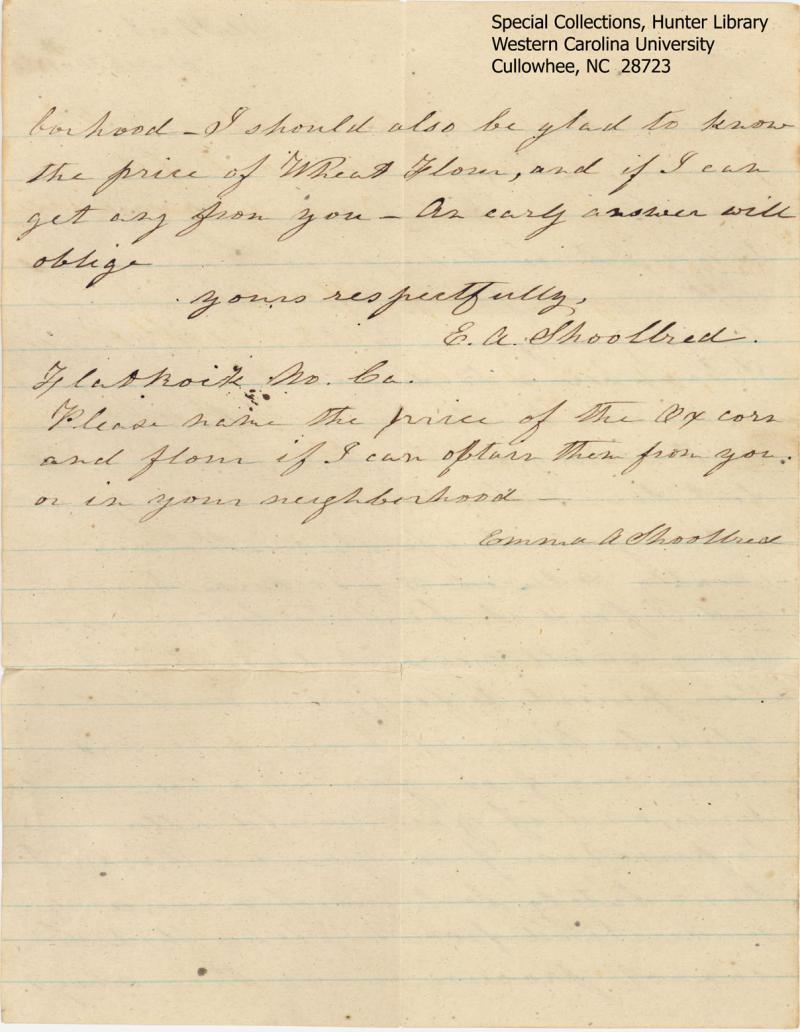Letter from Emma A. Shoolbred to Col. Cathey, March 30th 1863 (Page 2 of 2)
This is the second page of a letter written to Colonel Cathey from Emma A. Shoolbred during the Civil War. She is asking him for a ox and corn since her ox ran away and food is scarce.
This letter was digitized by Western Carolina University and can be accessed here: http://cdm16232.contentdm.oclc.org/cdm/ref/collection/p16232coll5/id/216
See page 1 here on ANCHOR: https://www.ncpedia.org/media/letter-emma-shoolbred-col-0

Emma A. Shoolbred to Col. J. Cathey, March 30, 1863. Joseph Cathey and Cathey Family Papers, Hunter Library, Western Carolina University, Cullowhee, NC. http://cdm16232.contentdm.oclc.org/cdm/ref/collection/p16232coll5/id/216
[Entire Letter]
[Entire Letter]
Flat Rock
March 30th 1863
Col. Cathey
Sir,
Though personally a stranger to you, I know that you are acquainted with my son James, and am induced to apply to you in a time of difficulty I have been a widow for three years, and James and his two younger brothers being in the army, in Virginia, and my eldest at [illegible], I am entirely with out any one to assist me the war has greatly reduced my circumstances, and I find it hard to live. I have many small negro children besides their parents to feed, and would be glad to know if I can purchase some corn from you at a reasonable price, and if you would allow me to purchase from you an ox, as I have lately lost one of mine, and understand from W. [?] Tabor that I cannot procure one in this neighborhood. I should also be glad to know the price of wheat flour, and if I can get any from you. An early answer will oblige
yours respectfully,
E.A. Shoolbred
Flat Rock, N.C.
Please name the price of the ox corn and flour if I can obtain them from you or in your neighborhood.
Emma A. Shoolbred
Public Domain
Public Domain is a copyright term that is often used when talking about copyright for creative works. Under U.S. copyright law, individual items that are in the public domain are items that are no longer protected by copyright law. This means that you do not need to request permission to re-use, re-publish or even change a copy of the item. Items enter the public domain under U.S. copyright law for a number of reasons: the original copyright may have expired; the item was created by the U.S. Federal Government or other governmental entity that views the things it creates as in the public domain; the work was never protected by copyright for some other reason related to how it was produced (for example, it was a speech that wasn't written down or recorded); or the work doesn't have enough originality to make it eligible for copyright protection.